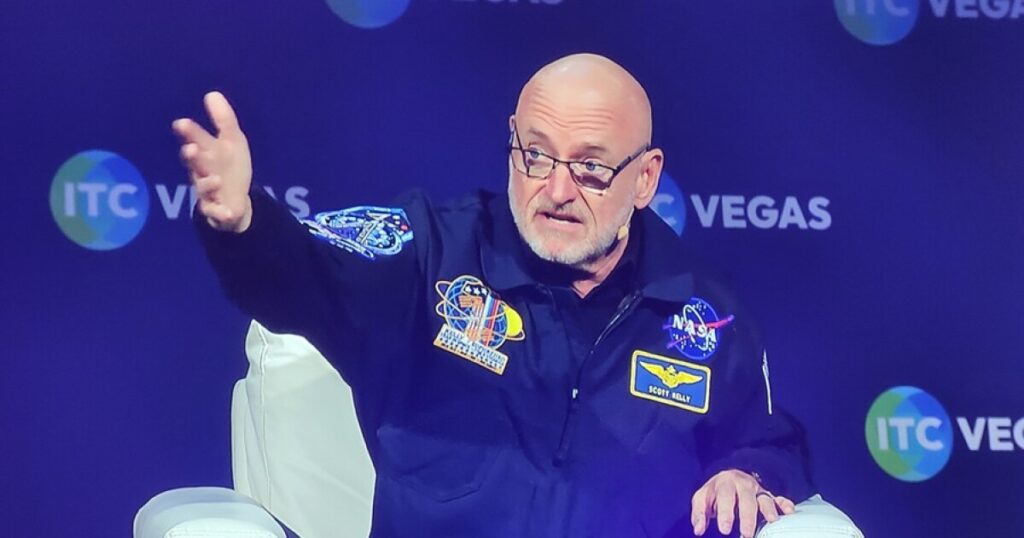Insurtech Connect keynote focuses on reaching the stars and achieving the impossible

The first day of Insurtech Connect (ITC) in Las Vegas featured a Q&A session between ITC President, Nicole Peck, and former astronaut Scott Kelly, who shared insights on the importance of teamwork and discussed how the space industry is continuing to evolve.
Kelly set a record for spending 340 days in space, a time he said was both exhilarating and difficult. His days comprised somewhat mundane activities, such as performing science experiments in space and making repairs to the space station, but these were balanced by more exciting opportunities, such as conducting space walks. “Putting on a space suit is incredibly complicated,” he said, explaining that they required days of preparation to execute and that it was a physically demanding activity.
He said reading the book The Right Stuff by Tom Wolfe as a teenager inspired him to be an astronaut and allowed him to see the possibility of doing something impossible. His mother, who sought to become the first female police officer in their town and was eventually one of the first in the state, also taught him the importance of working hard to achieve his goals.
Kelly explained that he learned about the importance of leadership and teamwork from his time in space. “Teamwork is a force multiplier. Taking care of your people is incredibly important.” NASA focuses on what he referred to as “expeditionary behavior,” which translates to “how do you take care of yourself and crew members in a situation?” He stressed the importance of a balance between self-care and taking care of the crew. “We’re all different and we need to elevate and support our team members the best we can and recognize that we all have different ways of operating.”
He said that resiliency and grit are important characteristics for astronauts and shared that many of the skills needed to survive in the outdoors are similar to those required in space. NASA uses the National Outdoor Leadership School to help future astronauts develop some of these competencies. “Some you can learn and some you may be born with.”
And, while the space program has changed with the advent of companies that are building and launching their own spacecraft, he adds that fundamentally “this has not changed the way we do things.” He shared that NASA used to micromanage the space program – what was built and how it was built. With the new players in the industry, NASA will say, “this is what it has to do, but you can figure out how to design and build it.”
When asked whether or not he would return to space to explore Mars at some point, he said he wouldn’t want to fly there on a one-way trip. “There’s no atmosphere, sun or wind in space,” but he agreed that NASA and others will pursue this opportunity, the question was when they would be able to. “The technology will be refined to do it, but you can’t live there now.”
For now, Kelly’s adventurous pursuits are more ground-based, but his desire to explore is still strong. He is planning to go to Antarctica in December.



